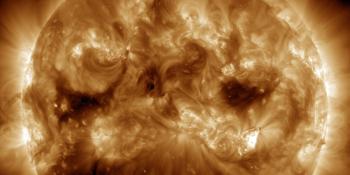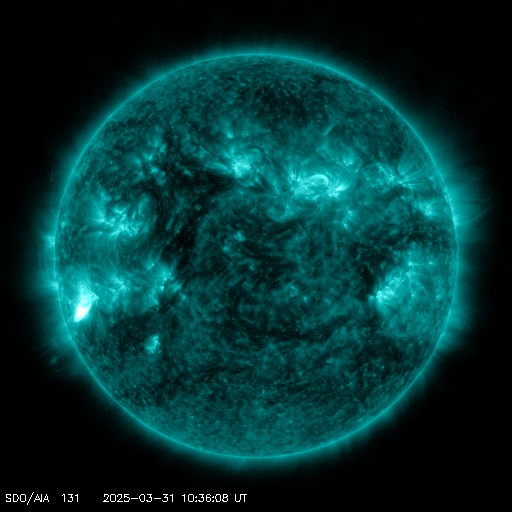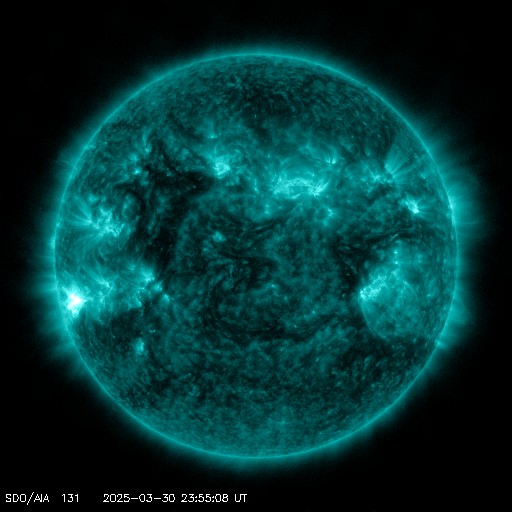M-class solar flares from sunspot region 2182
Thursday, 9 October 2014 15:00 UTC
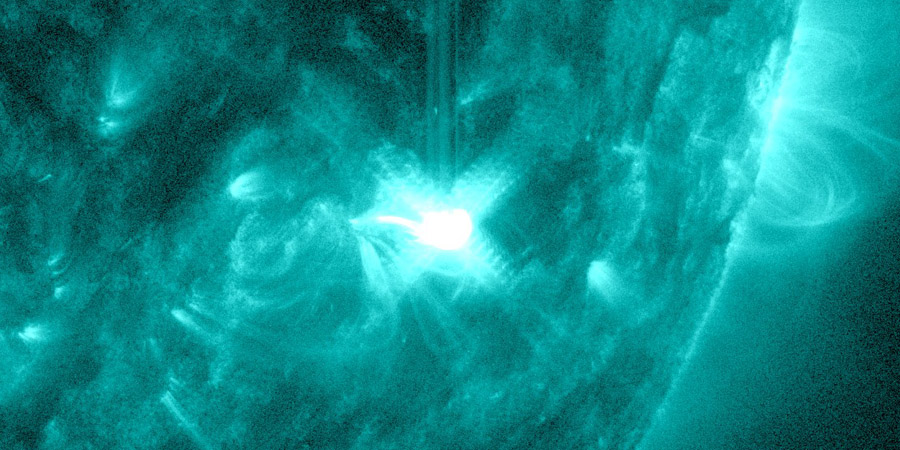
Solar activity increased surprisingly to moderate levels. Sunspot region 2182 was the source of three low-level M-class (R1-minor) solar flares today: M1.3 at 01:43 UTC, M1.4 at 01:58 UTC and M1.2 at 06:59 UTC. The solar flares were all rather impulsive and coronagraph imagery from SOHO/LASCO confirm that there were no coronal mass ejections associated with these events.
Sunspot region 2182 has been on the solar disk for a few days now but only recently started to grow. It is actually not a very complex group with only a modest Beta-Gamma magnetic layout. More low-level M-class solar flares can not be excluded but based on the current imagery we think the chances for more M-class solar flares are low. This sunspot region is already rotating out of Earth's view (current location: S16W50) and any future coronal mass ejection will likely be directed away from Earth.
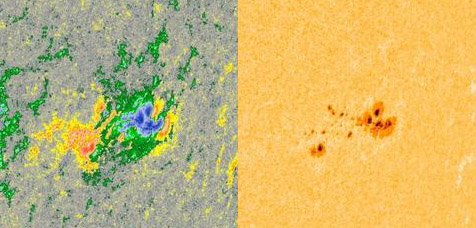
All other sunspot regions currently on the disk are unremarkable.
Geomagnetic conditions
Geomagentic conditions have been at active levels (Kp4) today according to the NOAA SWPC which is likely related with a solar sector boundary crossing that occurred yesterday. This brought a variable solar wind environment near Earth with favourable IMF parameters and above average solar wind density. The solar wind and IMF stats remain variable at this time so high latitutde sky watchers should be alert for possible aurora.
Thank you for reading this article! Did you have any trouble with the technical terms used in this article? Our help section is the place to be where you can find in-depth articles, a FAQ and a list with common abbreviations. Still puzzled? Just post on our forum where we will help you the best we can!
Current data suggests there is a slight possibility for aurora to appear at the following high latitude regions in the near future
Norilsk, VorkutaLatest news
Latest forum messages
More topicsSupport SpaceWeatherLive.com!
A lot of people come to SpaceWeatherLive to follow the Sun's activity or if there is aurora to be seen, but with more traffic comes higher server costs. Consider a donation if you enjoy SpaceWeatherLive so we can keep the website online!

Latest alerts
11:15 UTC - Solar protons
Minor S1 Solar Radiation Storm - Minor impacts on HF radio through polar regions
10:45 UTC - Solar flare
Moderate M1.26 flare
10:27 UTC - Radio Blackout
Minor R1 radio blackout in progress (≥M1 - current: M1.22)
00:09 UTC - Solar flare
Moderate M1.03 flare
Sunday, 30 March 2025
23:51 UTC - Radio Blackout
Minor R1 radio blackout in progress (≥M1 - current: M1.03)
Space weather facts
| Last X-flare | 2025/03/28 | X1.1 |
| Last M-flare | 2025/03/31 | M1.2 |
| Last geomagnetic storm | 2025/03/27 | Kp5 (G1) |
| Spotless days | |
|---|---|
| Last spotless day | 2022/06/08 |
| Monthly mean Sunspot Number | |
|---|---|
| February 2025 | 154.6 +17.6 |
| March 2025 | 127 -27.6 |
| Last 30 days | 127 -25.7 |


